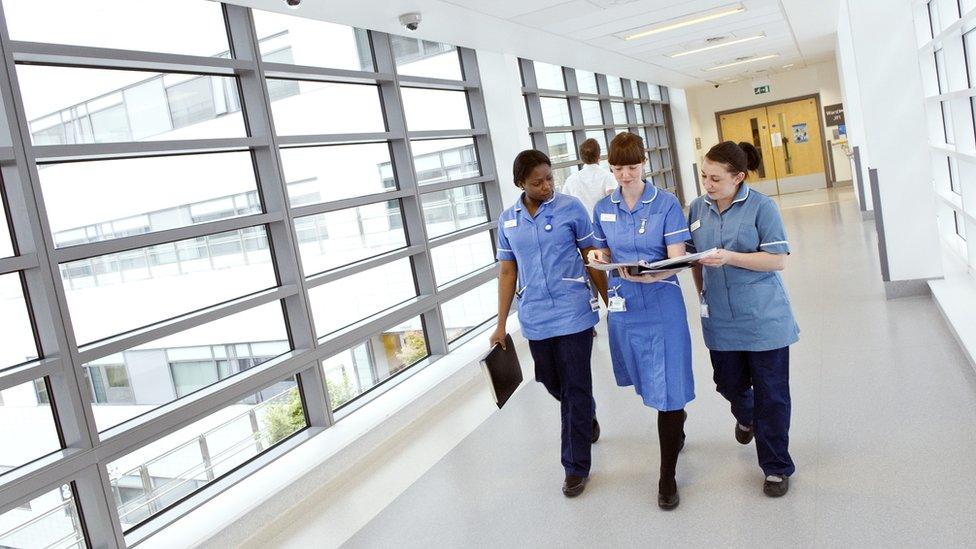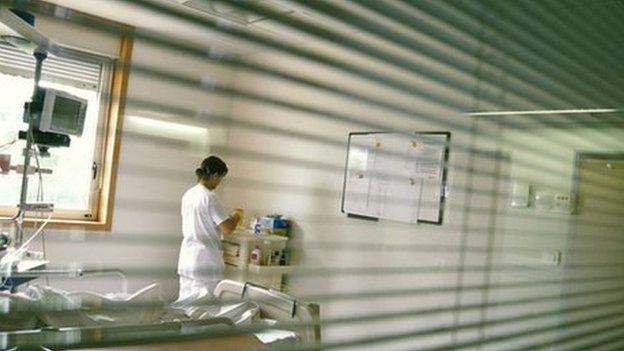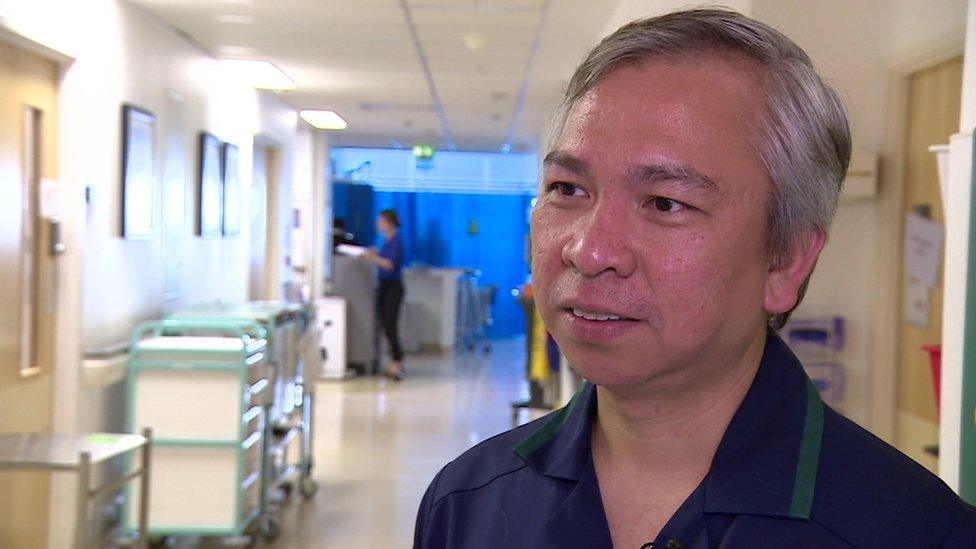NHS future precarious, says regulator
- Published

The Care Quality Commission (CQC) says the health system is "straining at the seams" and faces a "precarious" future.
The England's regulator's annual report raised concerns about staff shortages, rising demand and the number of patients with preventable illnesses.
It said so far the quality of NHS and council care has been maintained but warned standards were likely to drop.
Health Minister Philip Dunne suggested that extra money for social care, mental health and A&E was enough.
"With record funding and more doctors and nurses, the NHS was recently judged the best healthcare system in the world, despite the pressures from increasing demand," he said.
In its report, the CQC highlighted:
Staffing shortages with vacancy rates in the NHS rising by 16% over the last two years despite an increase in staff of 4%
Bed shortages in hospitals with occupancy levels being consistently above recommended levels since April 2012
Falling numbers of nursing homes beds - down by 4,000 in two years at a time when more are needed
Rising numbers of people not getting support for their social care needs with the numbers hitting 1.2m, up 18% in a year
Number of detentions under the Mental Health Act up by a fifth in two years to more than 63,000 last year
The CQC's report - its yearly round-up on the state of the sector - comes after it completed its new inspection regime of hospitals, mental health units and care services.
'Quality will fall'
CQC chief executive Sir David Behan said that while the quality of care was being maintained currently thanks to the efforts of staff, that resilience was not inexhaustible given the rising pressures.
"We are going to see a fall in the quality of services that are offered to people and that may mean that the safety of some people is compromised," he added.
He said the NHS is "struggling to cope with 21st century problems" including increasing numbers of people with illnesses linked to unhealthy lifestyle choices like obesity, diabetes, dementia and heart disease.
"We are living longer but are not living healthier so I think what we are signalling is that the system now and into the future has got to deal with those increased numbers of older people who are going to have more than one condition."
He said one of the immediate priorities was finding a solution to funding social care - ministers have promised a Green Paper by the end of the year after providing an extra £2bn of funding over the next three years to keep services going.

Caroline Abrahams, of Age UK, said the findings made worrying reading.
"Really this tells you everything you need to know about the state of care today - it's like a rubber band that's been stretched as far as it will go and can't stretch any further."
Labour Shadow Health Secretary Jonathan Ashworth said the report was "damning".
"Next month the Chancellor in his budget must finally put the NHS on a secure financial footing for the long term."

Are you waiting for NHS treatment? Have you recently faced a long wait in A&E? Share your experiences. Email haveyoursay@bbc.co.uk, external with your stories.
Please include a contact number if you are willing to speak to a BBC journalist. You can also contact us in the following ways:
WhatsApp: +44 7525 900971
Send pictures/video to yourpics@bbc.co.uk, external
Tweet: @BBC_HaveYourSay, external
Send an SMS or MMS to 61124 or +44 7624 800 100
- Published12 June 2017

- Published14 May 2017

- Published10 May 2016

- Published15 October 2015

- Published10 September 2015

- Published11 March 2014

- Published14 January 2016
